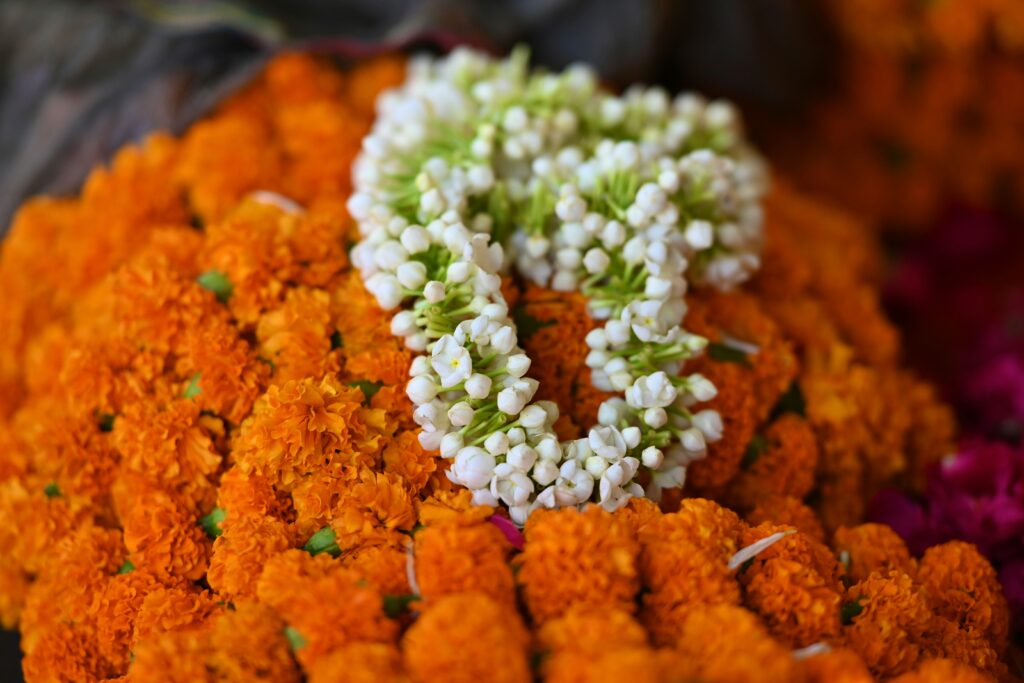The Significance of the Hindu Funeral
In the Hindu culture, death is not seen as the end of a person’s journey—it’s simply another phase in the ongoing cycle of life, death, and rebirth. This cycle is known as samsara. Hindus believe that the soul is eternal and that death marks a transition to the next life.
The funeral process, called Antyesti, Anti-Kriya, or Antim Sanskar (last rites), is a deeply spiritual event that is meant to ensure a peaceful transition for the soul. It’s about purification, release, and honoring the deceased’s journey in the cycle of reincarnation. The family takes part in prayers, rituals, and symbolic acts that honor the person’s life and soul. In the U.S., many families adapt these traditions to fit local funeral homes, temples, or crematoriums.
Before the Funeral: Family and Rituals
Hindu funerals often begin quickly, sometimes within 24 hours of death, aligning with the belief in the swift transition of the soul. The immediate family typically gathers for private rituals at home before the public service.
The key rituals include:
Preparation of the Body
Before the funeral, the body is often prepared by family members or funeral professionals. In Hinduism, cleanliness is important, so the body may be bathed and dressed in simple, traditional clothing, often in white, which symbolizes purity. Family members may apply sacred ashes or sandalwood paste to the forehead. In India, this often happens at home, while in the U.S., it may be arranged with the help of a funeral home experienced in Hindu customs.
The body is typically placed in the home for viewing, and family members and close friends may gather to offer their respects. While it’s not necessary for non-Hindu guests to participate in any rituals at this stage, offering a gesture of condolence, such as a gentle Namaste (palms pressed together), is appreciated.
The Funeral Procession
In Hindu funeral traditions, the body is generally cremated rather than buried. This is because cremation is believed to help release the soul from the physical body and facilitate its journey to the next life.
In India, the body is often carried through the streets to the cremation grounds. In the U.S., this may be a shorter, more private procession from the funeral home to a crematorium.
During the procession, close family members, especially male relatives, may chant mantras or prayers, sometimes led by a priest. If you are walking in the procession, it’s customary to follow the family respectfully and quietly.
The Funeral Service
Hindu funeral services can take place at a funeral home, a Hindu temple, or a crematorium. They are generally led by a Pundit (Hindu priest) who guides the family through various rituals. Common elements include:
- Prayers and Chanting: Sacred texts, like the Bhagavad Gita, may be read, and mantras or hymns, such as the Om Namah Shivaya, are chanted.
- Offerings: Offerings of rice, flowers garlands, ghee, and incense are often made to the deceased to honor their soul.
The Cremation
The funeral typically culminates at the cremation site, where the body is placed on a pyre. If you attend the cremation, you may see the family perform a final act known as the mukhagni (lighting of the pyre), often performed by the eldest son or another close male relative.
This act is symbolic of purification and release for the soul. In the U.S., this ritual is typically conducted using a gas-powered crematorium, though the symbolic significance remains.
After the cremation, the ashes may be collected and later scattered in a body of water—often the Ganges River in India, but in the U.S., families may choose a meaningful local river or other natural site.
How Long Does a Hindu Funeral Last?
The length of a Hindu funeral can vary depending on the family’s traditions, regional practices, and the specific rituals performed. Generally, the funeral ceremony itself can last anywhere from a few hours to an entire day. The key part of the funeral, which includes the cremation, often takes place within 24 hours of death.
Post-funeral rituals, common in India, often extend over several days and can last up to 13 days. In the U.S., these may be condensed or modified based on practical considerations, but many families still observe prayers and ceremonies at home or in a temple.
The 13th day typically marks the end of the mourning period and may include a special ceremony, such as a meal or prayer gathering, to honor the deceased.
Etiquette for Non-Hindu Guests
Here’s a gentle guide to Hindu funeral etiquette:
1. Hindu Funeral Attire is Modest and Respectful
When attending a Hindu funeral, it’s important to dress simply and conservatively. Traditional black funeral attire is not a requirement in Hindu culture. White is often preferred, as it symbolizes purity and peace. Avoid bright colors or flashy clothing.
2. Bringing Flowers
Flowers are a common offering at Hindu funerals, but the tradition may vary between families. If you’re unsure, you can either ask the family or bring simple, respectful flowers, such as white lilies or jasmine, which are common choices in both India and the U.S.
3. Offering Condolences
When offering condolences, a gentle and respectful approach is best. “I’m so sorry for your loss,” or “My thoughts are with you during this time,” are simple but heartfelt ways to show sympathy.
Final Thoughts
Hindu funerals are a beautiful reflection of the belief that life continues beyond death. Whether you’re attending to support a loved one or to learn more about a different cultural tradition, your quiet presence and empathy can offer much-needed solace to grieving families.
At Hollywood Forever, we understand the importance of honoring each individual’s unique cultural and spiritual beliefs. Our cremation services are thoughtfully designed to respect and support families during one of life’s most sensitive moments, providing care and compassion every step of the way.


